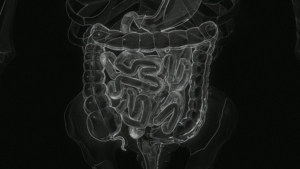
CAR-T cells against cancer
Cancer immunotherapy exploits the body's own immune system to fight against cancer. CAR-T cell therapy is one of the breakthrough approaches that involves re-engineering a patient's own
T cells to recognize and eradicate cancer.
Chimeric antigen receptor (CAR) therapies use CAR-T cells, a patient’s own immune cells that are programmed to recognize and kill cancer cells throughout the body. Beginning in 2017 with the approvals of tisagenlecleucel (Kymriah) and axicabtagene ciloleucel (Yescarta), CAR-T cell therapies have changed the treatment paradigm for patients with certain haematologic malignancies. Since those initial approvals, three other CAR-T cell therapies have been approved for various haematologic malignancies: brexucabtagene autoleucel (Tecartus), lisocabtagene maraleucel (Breyanzi®), and most recently, idecabtagene vicleucel (Abecma®).
Despite the remarkable clinical responses seen in patients with haematological malignancies, many challenges limit the therapeutic efficacy of current CAR-T cell therapies and their use in solid tumours.
In contrast to haematological malignancies, solid tumour CAR-T cell therapy is limited by the ability of the cells to traffic to and infiltrate the tumours. Solid tumours often have a physical barrier (such as the tu mor stroma) that limits the penetration of the CAR-T cells. In addition, the microenvironment surrounding solid tumours is often immunosuppressive.
One current strategy to overcome these challenges involves direct tumour administration (rather than systemic delivery), an approach that limits the need for the CAR-T cells to move to and infiltrate the tumours. Additionally, the direct administration route can help to reduce on-target, off-tumour toxicities by limiting interaction with normal tissues. Other strategies being explored focus on improving CAR-T cell trafficking using receptors on CAR-T cells that match tumour chemokines and engineering CAR-T cells that can express heparinase, an enzyme that can degrade the physical tumour stroma barrier, thereby increasing tumour infiltration and antitumour activity.
Clinical development of CAR-T cell therapies has accelerated significantly over the past decade, with 229 open or planned trials in the U.S. alone and over 950 trials globally as of June 2021.
With ongoing research, we hope to see faster, more cost-effective manufacturing and cell expansion using off-the-shelf products with improved safety profiles, making CAR-T cell therapy more accessible and affordable to the patients who need it.
This article was originally published in European Biotechnology Magazine Winter Edition 2021.



 Unsplash+
Unsplash+